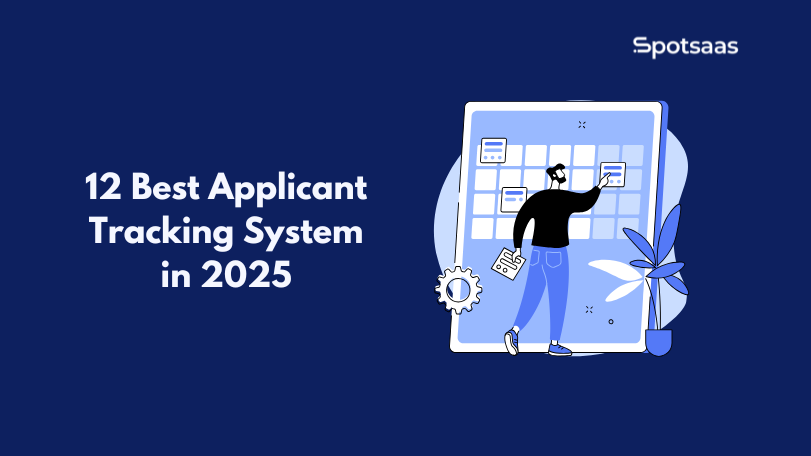Choosing the best VoIP provider for your business or personal needs can seem like a daunting task. With so many options and features to consider, it’s easy to feel overwhelmed.
In this blog post, we will simplify your decision by guiding you through key factors such as reliability, call quality, scalability, features, pricing plans, and integration options.
What is VoIP and its Types
VoIP, or Voice over Internet Protocol, is a technology that allows users to make calls using an internet connection instead of traditional phone lines. There are different types of VoIP services available, including SIP (Session Initiation Protocol) and hosted VoIP.
Other options include cloud-based VoIP, Unified Communications as a Service (UCaaS), and Communications Platform as a Service (CPaaS). Each type offers its own unique features and benefits for businesses looking to enhance their communication solutions.
SIP vs. VoIP
SIP (Session Initiation Protocol) and VoIP (Voice Over Internet Protocol) are often used interchangeably, but they are distinct in their functions and capabilities. Here is a comparison of the two:
| Criteria | SIP | VoIP |
|---|---|---|
| Definition | SIP is a protocol used for initiating, modifying, and terminating multimedia communication sessions. | VoIP is a technology that converts voice signals into digital signals and transmits them over the Internet. |
| Functionality | SIP can support any type of media including video, chat, and application sharing, not just voice. | VoIP primarily supports voice communication, though some providers offer additional services like video or chat. |
| Infrastructure | SIP can use existing PSTN lines in combination with VoIP. | VoIP needs an internet connection and does not require traditional phone lines. |
| Cost | SIP trunking can prove to be more cost-effective for businesses given its scalability and the ability to use existing infrastructure. | VoIP is often cheaper than traditional phone services due to low setup costs and minimal hardware requirements. |
| Call Quality and Uptime | SIP can offer better call quality and uptime, but this depends on the provider and network infrastructure. | VoIP call quality can be affected by internet speeds and bandwidth. Some providers may offer uptime guarantees. |
Understanding the difference between SIP and VoIP is crucial when choosing a VoIP provider. They each have their unique characteristics and should be carefully considered based on the specific needs of your business.
Hosted VoIP
Hosted VoIP is a good choice for many businesses. It is the kind of phone service that uses the Internet. This lets you make calls from anywhere with a good web link. The VoIP provider takes care of all the tech stuff.
They handle things like servers and software updates.
This type of VoIP can save money for your company. You do not have to buy or keep any equipment yourself. Just pay one fixed price each month to use it. Plus, most hosted VoIP providers offer extra features like call waiting and voicemail at no added cost.
Cloud-Based VoIP
Cloud-based VoIP is a type of phone service. You run it on the internet. It’s great for both home and business use. This kind of service makes your calls clear. It also keeps your calls going without stop, or “uptime”.
The best part? Cloud-based VoIP can grow with you! If you add more phones or offices, it can handle that too. Plus, it has lots of features like call forwarding and voicemail to email.
Most people find cloud-based VoIP easy to use and set up in their homes or businesses.
Unified Communications as a Service (UCaaS)
UCaaS, or Unified Communications as a Service, is a type of communication solution that combines different tools and services into one platform. With UCaaS, businesses can access features like voice calling, video conferencing, instant messaging, and file sharing all in one place.
This makes it easier for employees to collaborate and communicate effectively. UCaaS providers offer cloud-based solutions, which means that businesses don’t have to worry about managing hardware or infrastructure themselves.
Instead, they can rely on the provider’s servers to handle their communication needs. This allows for flexibility and scalability since businesses can easily add or remove users as needed.
Communications Platform as a Service (CPaaS)
Communications Platform as a Service (CPaaS) is a type of technology that allows businesses to integrate various communication services into their existing systems. With CPaaS, companies can easily incorporate features like voice calls, messaging, and video conferencing into their applications or websites.
This means that users can communicate with each other in real-time without having to switch between different platforms. CPaaS providers offer APIs and software development kits (SDKs) that make it easier for businesses to customize and enhance their communication capabilities.
It’s an efficient way for companies to streamline their operations and improve customer engagement by providing seamless communication solutions.
Factors to Consider when Choosing a VoIP Provider
When choosing a VoIP provider, there are several factors to consider. These include the cost of the service, the call quality, and uptime, the popular features offered by the provider, as well as the hardware and equipment required for setting up a VoIP system.
Cost
Choosing the best VoIP provider involves considering factors like cost. When comparing providers, it’s important to look at their pricing plans and determine which one aligns with your budget and needs.
Some providers may offer flexible pricing options, such as pay-as-you-go or monthly subscriptions, while others may have more comprehensive packages that include additional features.
It’s essential to evaluate the value you will be getting for the cost and ensure that it fits within your business’s financial capabilities. By carefully assessing the cost aspect of different VoIP providers, you can make an informed decision that is both affordable and meets all your communication requirements.
Call quality and uptime
One important factor to consider when choosing a VoIP provider is call quality and uptime. You want to make sure that your calls are clear and reliable, with no dropped calls or interruptions.
Look for providers that have a reputation for high call quality and offer guarantees on their uptime. This will ensure that you can communicate effectively without any technical issues.
Additionally, check reviews from other users to get an idea of the service’s performance in terms of call quality and uptime. Reliable communication is crucial for business success, so it’s essential to choose a VoIP provider that prioritizes these aspects.
Popular VoIP phone service features
VoIP phone services offer a range of features to enhance communication. Here are some popular features to consider:
| Feature | Description |
|---|---|
| Call Forwarding | Redirect calls to another number to avoid missing important messages. |
| Caller ID | Display caller information before answering the call. |
| Voicemail | Receive and listen to voice messages at your convenience. |
| Conference Calling | Connect multiple participants on a single call for group discussions. |
| Auto Attendant | Use automated greetings and menu options for efficient call routing. |
| Call Recording | Record calls for training purposes or future reference. |
| Virtual Phone Numbers | Obtain local or toll-free numbers in different locations for a professional image. |
| Mobile App Integration | Access VoIP services on your smartphone or tablet for flexibility. |
| Instant Messaging and Chat | Communicate through text-based conversations within the VoIP system. |
| Video Conferencing | Conduct face-to-face meetings remotely using video technology. |
VoIP hardware and equipment
VoIP hardware and equipment are important considerations when setting up a VoIP system. Here are some key things to keep in mind:
- Phones: You will need IP phones that are compatible with your VoIP service provider. These phones connect to the internet instead of traditional phone lines.
- Analog Telephone Adapters (ATAs): If you have existing analog phones, you can use ATAs to convert them into IP-compatible devices. This allows you to continue using your current phones with your VoIP system.
- Routers: A reliable internet connection is crucial for VoIP, so make sure you have a quality router that can handle the bandwidth requirements of your calls.
- Headsets: If your team engages in a lot of hands-free calling, consider investing in high-quality headsets for better sound quality and comfort during long conversations.
- Network Switches: These devices help manage and control the flow of data within your network, ensuring smooth communication between devices.
- Power over Ethernet (PoE) Switches: PoE switches provide power and data connectivity to IP phones through a single Ethernet cable, eliminating the need for separate power adapters.
How to Set Up a VoIP System
Setting up a VoIP system is easy and straightforward. First, choose the right VoIP features for your business needs. Next, decide between fixed or non-fixed VoIP services. Then, set up the necessary hardware and equipment, such as IP phones or adapters.
Finally, explore common add-ons to enhance your VoIP experience. To learn more about setting up a VoIP system and ensuring smooth communication for your business, keep reading!
Choosing the right VoIP features for your business
To choose the right VoIP features for your business, consider these key factors:
| Key Factor | Description |
|---|---|
| Call Management Tools | Features like call forwarding, call waiting, and call transfer to streamline communication. |
| Auto-Attendant | An automated greeting and call routing system to direct callers to the appropriate department or extension. |
| Conference Calling | Capabilities for holding meetings with multiple participants via conference calls. |
| Voicemail-to-Email Transcription | Conversion of voicemails into text format and delivery to your email for easy reading and responses. |
| Mobile Apps | Availability of mobile apps for making and receiving calls using smartphones, enabling communication on the go. |
| Advanced Analytics | Detailed call analytics including volume, duration, and other metrics for insights into communication patterns. |
| CRM Integration | Integration with customer relationship management (CRM) systems to track and manage customer interactions efficiently. |
| Scalability | Ability to easily scale the VoIP system as your business grows, adding or removing phone lines as needed. |
Types of VoIP services: fixed vs. non-fixed
VoIP services mainly come in two types: fixed and non-fixed. Both types have distinct features that cater to different communication needs. The distinction lies primarily in the level of mobility and flexibility they offer.
| Type | Description | Advantages | Disadvantages |
|---|---|---|---|
| Fixed VoIP | A fixed VoIP service is tied to a physical location, much like a traditional landline. The service comes with a physical address, which is important for emergency services. It’s typically used by businesses and residences. | Fixed VoIP services offer more features compared to non-fixed ones. It’s more reliable and offers better call quality. It’s considered more secure due to its association with a physical address. | Fixed VoIP services lack the flexibility of non-fixed services. They can’t be used outside of the physical location they are tied to, which limits mobility. |
| Non-Fixed VoIP | A non-fixed VoIP service isn’t tied to a physical location. Instead, it operates over the internet, allowing users to make and receive calls from anywhere. It’s ideal for freelancers, remote workers, and businesses with a mobile workforce. | Non-fixed VoIP services offer greater flexibility and mobility compared to fixed services. Users can use the service from anywhere, making it ideal for remote work. It’s also generally cheaper than fixed VoIP. | Non-fixed VoIP services typically offer fewer features compared to fixed ones. They are also considered less secure due to the lack of a physical address, which could lead to issues during emergencies. |
Choosing between fixed and non-fixed VoIP services depends on your specific communication needs. If mobility and flexibility are paramount, then a non-fixed service might be the best choice. On the other hand, if reliability, security, and a range of features are more important, then a fixed service might be the better option.
Setting up hardware and equipment
Setting up a VoIP system requires the right hardware and equipment. Here are the important steps to consider:
- Research and choose the appropriate VoIP phones or devices for your business needs.
- Ensure that your internet connection meets the requirements for VoIP service.
- Connect your VoIP devices to your internet network using Ethernet cables or Wi-Fi.
- Set up a power source for your VoIP devices, either through electrical outlets or Power over Ethernet (PoE) switches.
- Install any necessary software or applications provided by your VoIP service provider onto your devices.
- Configure the settings on your VoIP devices, including assigning phone numbers and setting up voicemail.
- Test the functionality of your VoIP system by making test calls and checking call quality.
Common VoIP add-ons
Here are some common VoIP add-ons that can enhance your communication experience:
- Call Recording: Some VoIP providers offer the option to record calls for quality monitoring or legal purposes.
- Auto Attendant: This feature allows callers to navigate through a menu system to reach the appropriate department or extension.
- Call Forwarding: Easily forward calls from your VoIP number to any other phone, ensuring you never miss an important call.
- Virtual Fax: Send and receive faxes through your VoIP system using virtual fax services, eliminating the need for a separate fax machine.
- Video Conferencing: Conduct face-to-face meetings with colleagues or clients from anywhere using video conferencing features integrated into your VoIP service.
- Mobile Apps: Many VoIP providers offer mobile apps that allow you to make and receive calls on your smartphone, providing flexibility and convenience.
- Softphones: These software-based applications turn your computer into a phone, enabling you to make and receive calls directly from your computer without additional hardware.
- Team Messaging: Some VoIP providers include team messaging features that allow for real-time collaboration and group chats among team members.
Conclusion and Future Trends in VoIP Technology
In conclusion, choosing the best VoIP provider requires considering factors like reliability, call quality, features, pricing, and integration. It’s important to compare services based on their features and services for businesses.
PCMag’s Business Choice survey can provide helpful insights into top providers. With a comprehensive guide and comparison of VoIP providers, individuals and businesses can make an informed choice for their communication needs.



